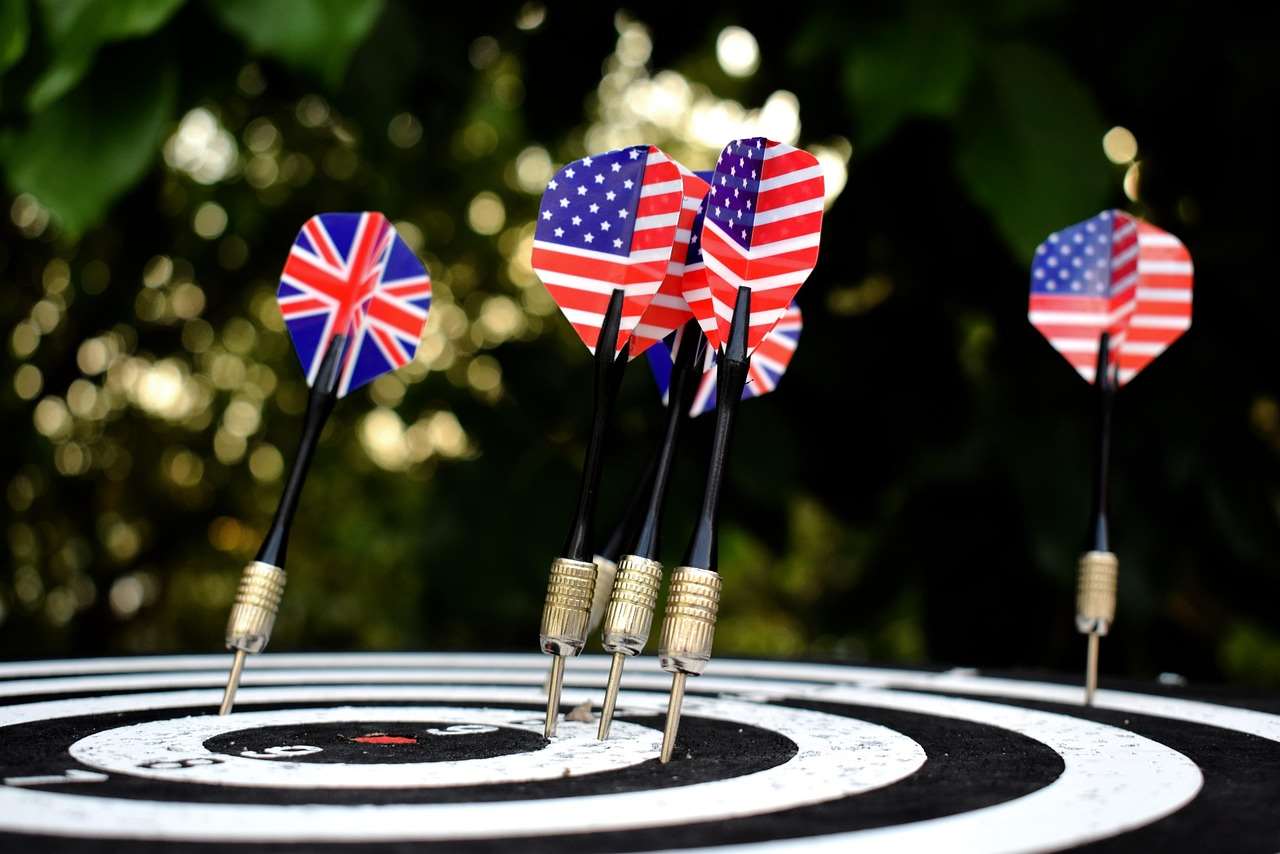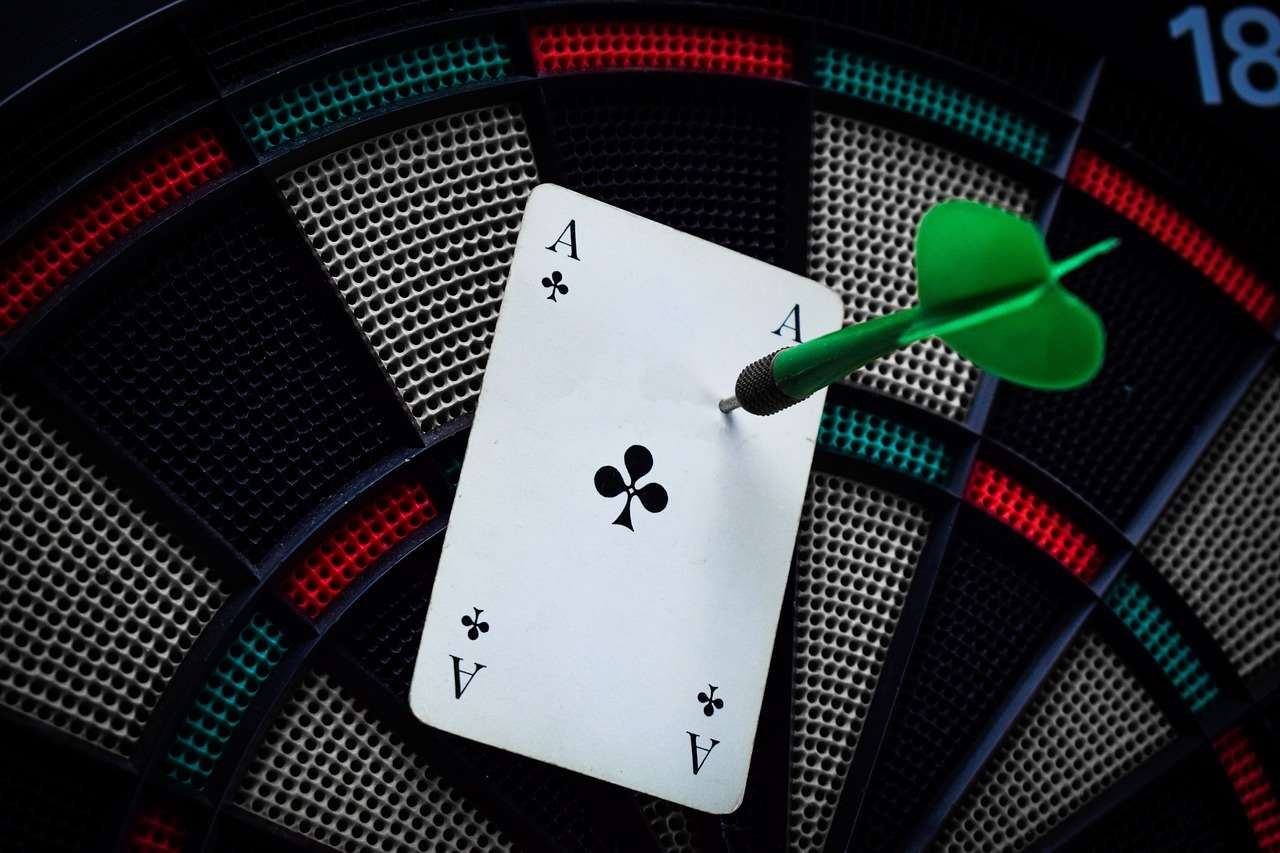Mastering team darts communication tips is the secret weapon that elevates good teams to greatness; clear, concise communication sharpens focus and builds winning strategies. This article explores effective strategies for communicating during team darts, covering pre-match planning, in-game adjustments, and post-match analysis.
⚠️ Still Using Pen & Paper (or a Chalkboard)?! ⚠️
Step into the future! The Dart Counter App handles all the scoring, suggests checkouts, and tracks your stats automatically. It's easier than you think!
Try the Smart Dart Counter App FREE!Ready for an upgrade? Click above!
Why Effective Communication is Crucial in Team Darts
In the fast-paced environment of team darts, communication is paramount. It’s more than just calling out scores; it’s about building trust, strategizing effectively, and maintaining a positive atmosphere. Strong team darts communication tips translate directly into improved performance and a competitive edge. When players communicate well, they can quickly adapt to changing circumstances, support each other during tense moments, and celebrate successes together.

Consider a scenario where one player is struggling with their doubles. Open and honest communication allows teammates to identify this early on and adjust the strategy accordingly. Perhaps another player is more confident on doubles and can take on that responsibility. This type of adaptability is only possible with good communication.
Building Trust and Rapport Through Communication
Trust is the foundation of any successful team, and clear communication is the bedrock upon which that trust is built. When teammates openly share their thoughts, feelings, and concerns, it fosters a sense of camaraderie and mutual respect. This, in turn, creates a more supportive and positive team environment, allowing players to perform at their best, even under pressure. Don’t forget to explore Darts Variants Fun Games for building that team rapport in practice!
Pre-Match Planning: Setting the Stage for Success
Effective communication begins long before the first dart is thrown. Pre-match planning is a crucial opportunity to establish clear roles, discuss strategies, and build team cohesion. Here are some key team darts communication tips for pre-match preparation:
- Define Roles and Responsibilities: Clearly assign roles for each player, such as who will focus on hitting specific numbers, who will be the designated closer for doubles, and who will keep track of the scores.
- Develop a Game Plan: Discuss different scenarios that might arise during the match and develop strategies for dealing with them. This could include plans for catching up if the team falls behind, or for maintaining a lead if the team is ahead.
- Practice Together: Practicing together provides opportunities to refine communication, identify strengths and weaknesses, and build trust and understanding between teammates.
- Establish Non-Verbal Cues: Agree on a set of non-verbal cues that can be used during the match to communicate without speaking. This could include a hand signal for indicating that a player wants to switch to a different number, or a nod of encouragement to show support.

In-Game Communication: Staying Connected Under Pressure
During the heat of the match, clear and concise communication is essential for staying focused and making effective decisions. Remember these team darts communication tips during the game:
- Call Out Scores Clearly: Ensure that all players can clearly hear and understand the scores being called out. Use a consistent and unambiguous method for calling scores to avoid confusion.
- Offer Encouragement and Support: Provide positive reinforcement and support to teammates, especially during challenging moments. A simple “good shot” or “keep going” can make a big difference in maintaining morale.
- Communicate Strategically: Share information about your opponent’s strengths and weaknesses, and suggest adjustments to the game plan as needed.
- Use Non-Verbal Cues Effectively: Utilize the non-verbal cues that were established during pre-match planning to communicate quickly and discreetly.
Effective darts strategy includes adapting to the current match conditions and your opponent’s play. Make sure to communicate observations openly and constructively.
Post-Match Analysis: Learning and Growing Together
The learning process doesn’t end when the match is over. Post-match analysis provides a valuable opportunity to review performance, identify areas for improvement, and refine communication strategies. Integrate these team darts communication tips into your post-game routines:
- Review Key Moments: Discuss specific moments in the match where communication was particularly effective or ineffective. Analyze what worked well and what could have been done differently.
- Provide Constructive Feedback: Offer honest and constructive feedback to teammates, focusing on specific behaviors and actions rather than personal attacks.
- Identify Areas for Improvement: Work together to identify areas where the team can improve its communication strategies. This could involve practicing specific communication techniques or developing new non-verbal cues.
- Celebrate Successes: Acknowledge and celebrate the team’s successes, both big and small. This helps to build morale and reinforces the importance of effective communication.

Analyzing past performance is a great way to improve your overall darts technique. Consider watching recordings of your matches to analyze both strengths and weaknesses.
The Role of Body Language in Team Darts Communication
While verbal communication is important, body language also plays a significant role in team dynamics. Maintain positive and encouraging body language, even when things aren’t going as planned. Avoid gestures that could be interpreted as negative or dismissive. Eye contact, nods of encouragement, and a confident posture can all contribute to a more supportive and cohesive team environment. And remember, exploring forgotten pub dart games can be a great way to unwind and build team spirit.
Handling Conflict and Disagreements Constructively
Even in the best of teams, conflict and disagreements are inevitable. The key is to handle these situations constructively, using communication to find common ground and resolve issues amicably. Here are some team darts communication tips for dealing with conflict:
- Listen Actively: Take the time to truly listen to your teammates’ perspectives, without interrupting or judging.
- Express Yourself Respectfully: Communicate your own thoughts and feelings in a clear and respectful manner, avoiding accusatory language or personal attacks.
- Focus on the Issue, Not the Person: Address the specific issue at hand, rather than making personal attacks or blaming individuals.
- Seek Common Ground: Look for areas where you and your teammates can agree, and build from there.
- Be Willing to Compromise: Be prepared to compromise and find solutions that work for everyone involved.

Learning to manage conflict effectively is a crucial skill that translates far beyond the dartboard. Mastering this skill enhances not only darts strategy but also overall team dynamics.
Specific Communication Strategies for Different Team Darts Formats
The specific communication strategies you employ may vary depending on the type of team darts format you’re playing. For example, in a doubles format, communication will be more focused on coordinating shots and supporting your partner. In a team format with multiple players, communication will need to be broader, involving strategic discussions and team encouragement. Understanding the nuances of each format allows you to tailor your team darts communication tips accordingly.
When delving into historical dart game variations, note how different rules might have implicitly shaped communication patterns among players.
Leveraging Technology for Improved Communication
In today’s digital age, technology can play a valuable role in enhancing team communication. Consider using messaging apps or online platforms to facilitate communication outside of matches, share practice schedules, and discuss strategy. Video analysis tools can also be used to review matches and provide visual feedback on performance. Be sure to use technology in a way that complements, rather than replaces, face-to-face communication.

The Importance of a Positive and Supportive Team Environment
Ultimately, the most effective team darts communication tips are those that contribute to a positive and supportive team environment. When players feel valued, respected, and supported, they are more likely to communicate openly, collaborate effectively, and perform at their best. Cultivate a culture of encouragement, empathy, and mutual respect, and watch your team’s communication – and performance – soar. Remember that understanding history of darts games uk can provide a great source of fun facts and team bonding opportunities.
Additional Tips for Enhancing Team Darts Communication
- Practice Active Listening: Focus on understanding your teammates’ perspectives before responding.
- Be Clear and Concise: Avoid jargon and unnecessary complexity in your communication.
- Be Respectful and Empathetic: Treat your teammates with respect and understanding, even during difficult moments.
- Provide Regular Feedback: Offer constructive feedback to help your teammates improve their performance.
- Celebrate Successes: Acknowledge and celebrate the team’s achievements, both big and small.
Conclusion: Elevate Your Game with Effective Team Darts Communication
By implementing these team darts communication tips, you can transform your team from a group of individuals into a cohesive and high-performing unit. Remember that communication is an ongoing process that requires effort, commitment, and a willingness to learn and adapt. By prioritizing clear, concise, and supportive communication, you can unlock your team’s full potential and achieve remarkable success on the dartboard. Take these strategies and start implementing them in your next team practice! Are you ready to take your team’s communication – and performance – to the next level? Start today!
Hi, I’m Dieter, and I created Dartcounter (Dartcounterapp.com). My motivation wasn’t being a darts expert – quite the opposite! When I first started playing, I loved the game but found keeping accurate scores and tracking stats difficult and distracting.
I figured I couldn’t be the only one struggling with this. So, I decided to build a solution: an easy-to-use application that everyone, no matter their experience level, could use to manage scoring effortlessly.
My goal for Dartcounter was simple: let the app handle the numbers – the scoring, the averages, the stats, even checkout suggestions – so players could focus purely on their throw and enjoying the game. It began as a way to solve my own beginner’s problem, and I’m thrilled it has grown into a helpful tool for the wider darts community.